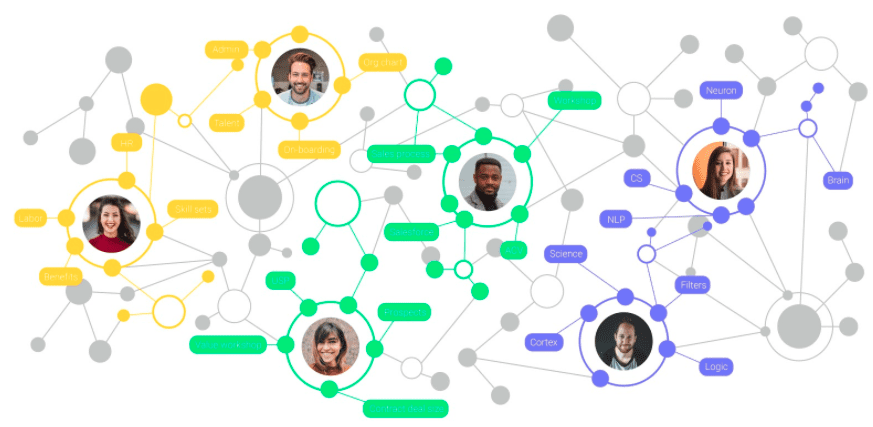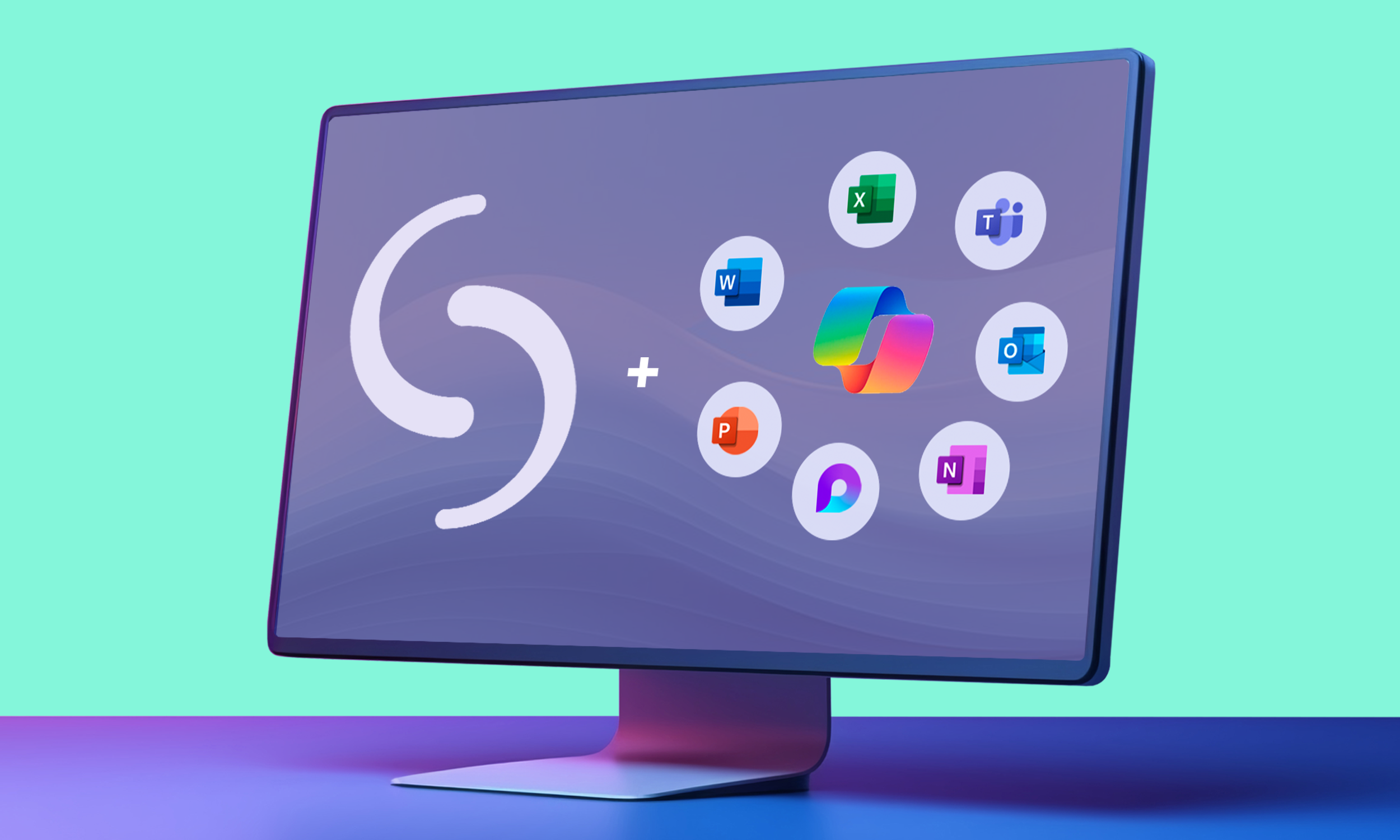Contents
Josh Bersin, Global Industry Analyst, with Oliver Muhr, Starmind CEO, hosted a webinar to discuss the difference between skills and capabilities, why skill management in real-time is an essential part of HR strategy, and the considerations businesses should keep in mind when adopting a skills platform. They take a detailed look at the reasons implementing a skills cloud is important to consider now, what defines a skills cloud and how to capture the public data about employees’ skills readily available across enterprise software into a single source.
The conversation also dives into the differences between AI-infused tools that are powerful enough to create skills clouds by automatically capturing capabilities and tools that only index skills based on tagging keywords. Visibility into employee skills is an essential driver of strategic workforce planning.
“Josh Bersin, the founder of Bersin Academy, a leading provider of research-based membership programs in HR, talent and learning, is a world-renowned global research analyst. He provides research and advisory services focused on corporate learning, leadership, talent management and HR technology. Oliver Muhr is an experienced leader in the SaaS ecosystem with over 15 years of experience. He sees the opportunity to capitalize on HR megatrends to build solutions that benefit employees, executives and organizations alike.”
Until recently, the economy was steadily growing, but currently businesses are challenged with strategically and quickly transforming to navigate expedited trends like remote work, contingent employees and lateral talent mobility. To transition to a more agile way of working and close widening knowledge gaps successfully, businesses need an overview of their employees’ skills and capabilities. A picture of just tactical skills also falls short, as the human, leadership, management and functional skills are equally essential to a business’s success. The foundation of this is a platform that can identify and connect experts to encourage knowledge exchange, regardless of where employees are, and to maximize productivity.
Enterprises already use software that contains information about employees’ skills and capabilities, but each tool contains different data points. Meaning is data scattered across multiple platforms and isn’t contextualized or pinpointed to solve specific business challenges. Talent management, performance management and talent mobility all have a skills component. Laying a foundation across all HR downstream functions to holistically uncover the value of the company's most important intangible asset, employee knowledge, is highly necessary. Only indexing skills and skill keywords can result in a blindsided abstract project, rather than a helpful, high-level skills management strategy. To achieve an effective, data-driven HR strategy, the distinction between skills, knowledge on a topic, and capabilities, the ability to a job, must be made.
Most companies today still rely on manual processes such as internal assessments or surveys to build employee profiles. These profiles also have the limitations of those used in the 1900s: static, presenting a snapshot in time that includes very basic information such as name, address and job history. Such methods result in quickly outdated skill profiles, can be biased and fail to represent an accurate picture of employees’ capabilities.
While this type of data speaks to an employee’s knowledge of a topic, it doesn’t indicate whether an employee can do a particular job. The concept of a skills cloud is based on leveraging the public data within enterprise software to create employee skill profiles that are real-time, based on multiple data sources that reflect capabilities, not just skills. It then contextualizes this data, ranks skills and maps them to the company's job structure to generate an accurate, real-time overview of individual and company skills. The challenge is accessing this data at scale, having it in one place and using it to drive business decisions favorable to both the company and its employees.
In the age of the knowledge worker, talent management and career mobility have transformed and will continue to make skills clouds or skill platforms more important than ever before. There has been a 35% increase in businesses transitioning to a network structure instead of a hierarchy to move away from the traditional, outdated vertical promotion path. This restructuring has been expedited by the current pandemic, leading to an even greater increase in contingent and remote workers.
Within a network structure, employee mobility is capabilities-based and also takes into account horizontal career development. For companies to strategically navigate this transformation and meet employees’ expectations while matching talent plans to business strategy, they must be able to identify capabilities at scale in real-time with an automated tool. Businesses need to understand what employees know and what they want to know. Having an overview of employees’ capabilities includes evaluating whether training has been effective, which depends on the ability to factually prove employees are applying the newly acquired skill. The best skills management tools take into account the ontology specific to each company, resulting in employee profiles uniquely matched to their business.
Skills clouds also provide an appealing yet critical opportunity in large enterprises to help eliminate unconscious talent development bias and naturally encourage diversity. Data can uncover which employees have the right capabilities to fill specific roles, helping mitigate the probability of promotion based on favoritism. Such data is at the core of human-centered workforce planning, showing the as is skill supply and facilitating planning to build future strategies that fully leverage the organization's existing potential. It can provide all employees an opportunity to shine, even the ones that don't proactively promote their contribution. An increase in employee productivity is a natural consequence of this approach.
Beyond creating a skills cloud, Starmind focuses on intelligently connecting humans through these skill profiles to enable them to do their job better, quicker, engage the right resources within the organization and foster a culture of knowledge sharing. Team human is at the core of Starmind’s values.
Bersin and Oliver thoroughly cover these strategic HR topics and more in this free webinar. Watch the full video to better understand how skill capturing should fit into your existing tapestry of HR technology and how to distinguish between vendors who automatically capture capabilities in real-time versus those who only index skills. On top of granting organizations the opportunity to adopt a transparent and data-driven workforce planning strategy, skills management tools need to empower individual employees to grow and contribute in areas and business projects where they can add the most value.
Acknowledging that knowledge workers are the increasingly scarce resource that directly impacts your business’s valuation and taking action to nurture employees and skills is essential to retain a competitive advantage, supercharge the outcome of your investment in data and thrive through change.



